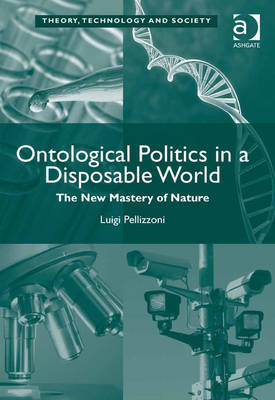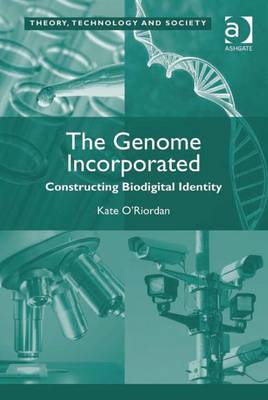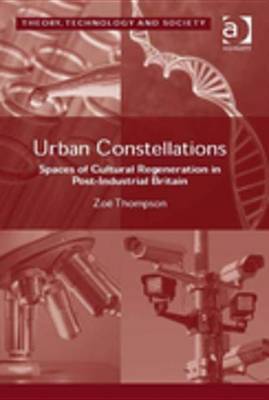Theory, Technology and Society
4 total works
This book explores the intertwining of politics and ontology, shedding light on the ways in which, as our ability to investigate, regulate, appropriate, `enhance' and destroy material reality have developed, so new social scientific accounts of nature and our relationship with it have emerged, together with new forms of power. Engaging with cutting-edge social theory and elaborating on the thought of Foucault, Heidegger, Adorno and Agamben, the author demonstrates that the convergence of ontology with politics is not simply an intellectual endeavour of growing import, but also a governmental practice which builds upon neoliberal programmes, the renewed accumulation of capital and the development of technosciences in areas such as climate change, geoengineering and biotechnology.
With shifts in our accounts of nature have come new means of mastering it, giving rise to unprecedented forms of exploitation and destruction - with related forms of social domination. In the light of growing social inequalities, environmental degradation and resource appropriation and commodification, Ontological Politics in a Disposable World: The New Mastery of Nature reveals the need for new critical frameworks and oppositional practices, to challenge the rationality of government that lies behind these developments: a rationality that thrives on indeterminacy and an account of materiality as comprised of fluid, ever-changing states, simultaneously agential and pliable, to which social theory increasingly subscribes without questioning enough its underpinnings and implications.
A theoretically sophisticated reassessment of the relationship between ontology and politics, which draws the contours of a renewed humanism to allow for a more harmonious relationship with the world, this book will appeal to scholars in social and political theory, environmental sociology, geography, science and technology studies and contemporary European thought on the material world.
The Genome Incorporated examines the proliferation of human genomics across contemporary media cultures. It explores questions about what it means for a technoscience to thoroughly saturate everyday life, and places the interrogation of the science/media relationship at the heart of this enquiry.
The book develops a number of case studies in the mediation and consumption of genomics, including: the emergence of new direct-to-the-consumer bioinformatics companies; the mundane propagation of testing and genetic information through lifestyle television programming; and public and private engagements with art and science institutions and events.
Through these novel sites, this book examines the proliferating circuits of production and consumption of genetic information and theorizes this as a process of incorporation. Its wide-ranging case studies ensure its appeal to readers across the social sciences.
This book investigates the iconic architectural cultural spaces of the contemporary cityscape as engines of regeneration. Promising much to their fading locales, these spaces locate culture in the space where production once ruled in order to revitalise post-industrial urban provinces.
With close attention to four sites across the UK, Urban Constellations engages with the work of Walter Benjamin and Jean Baudrillard, to read these spaces and in so doing, offer a critical intervention into the theory and experience of contemporary cityscapes. Developing the notion of surface ethnography as a methodological approach to examining the form of cultural experience produced by urban cultural spaces, the author sheds light on the manner in which they transform cultural spectatorship, express wider political and ecological concerns and offer differing views to the `native’ and the `tourist’ in the construction of local history. The book also examines the decline of the idea that iconic projects can drive regeneration, in the failures and delays that can beset such undertakings.
Offering a rich examination of the legacy of urban change in its most recent formulation - that of cultural regeneration - this book reveals the fragile potential of the spaces produced by contemporary `dream houses’ and as such, will be of interest to scholars of cultural studies, sociology and social theory, urban studies, cultural geography and architecture.
Given the propensity of contemporary protection measures such as counterterrorism efforts and fierce protection strategies against viral threats, as well as physical and legal barriers against migration, a number of political philosophers, including Peter Sloterdijk and Roberto Esposito, have claimed that contemporary (political) culture can be characterised by a so-called `immunisation paradigm'. This book critically examines the intricate entanglement between biological immunological notions and their political philosophical appropriation, whilst studying the `immunisation response' to recent viral threats, including the Swine Flu pandemic of 2009 and the lab-bred Avian flu threat of 2012, to analyse immunisation as a biopolitical strategy.
Offering insights into to the polarising tendencies in contemporary political culture resulting from the appropriation of immunological concepts in political thought, the author also shows how political philosophers tend to build on purely defensive understandings of immunity. As such, Immunological Discourse in Political Philosophy constitutes a theoretically sophisticated critique of the `semantic trap' caused by the use of immunological concepts in political philosophy. Arguing for a more versatile and less defensive immunological repertoire, which allows for the development of alternative and less polarised forms of political debate, this book will appeal to scholars of political theory, sociology, philosophy and science and technology studies.



